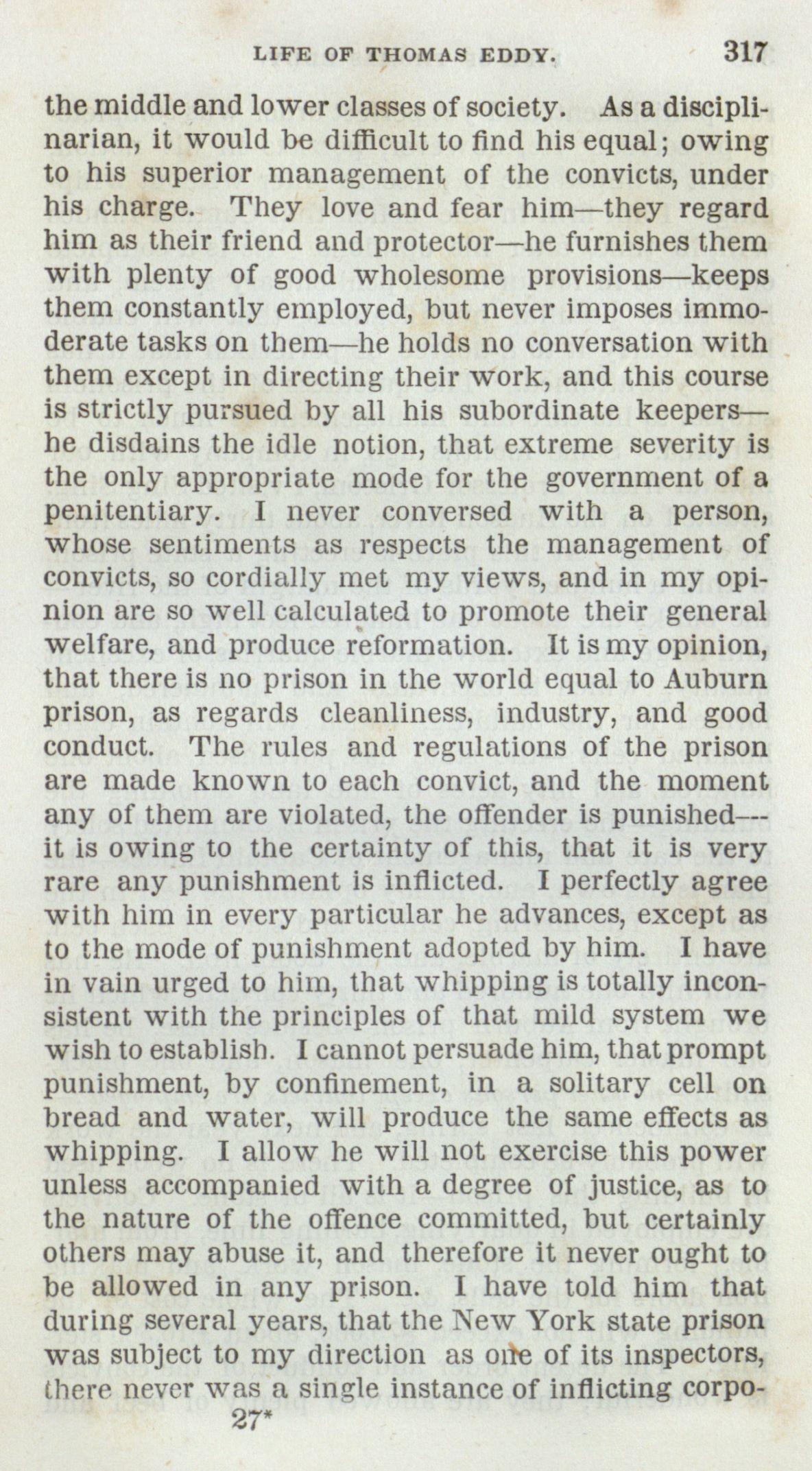the middle and lower classes of society. As
a discipli-
narian, it would be difficult to find his equal;
owing
to his superior management of the convicts, under
his
charge. They love and fear him—they regard
him as their friend and
protector—he furnishes them
with plenty of good wholesome
provisions—keeps
them constantly employed, but never imposes
immo-
derate tasks on them—he holds no conversation with
them
except in directing their work, and this course
is strictly pursued
by all his subordinate keepers—
he disdains the idle notion, that
extreme severity is
the only appropriate mode for the government of
a
penitentiary. I never conversed with a person,
whose
sentiments as respects the management of
convicts, so cordially met
my views, and in my opi-
nion are so well calculated to promote
their general
welfare, and produce reformation. It is my
opinion,
that there is no prison in the world equal to
Auburn
prison, as regards cleanliness, industry, and good
conduct. The rules and regulations of the prison
are made known to
each convict, and the moment
any of them are violated, the offender
is punished—
it is owing to the certainty of this, that it is
very
rare any punishment is inflicted. I perfectly agree
with
him in every particular he advances, except as
to the mode of
punishment adopted by him. I have
in vain urged to him, that
whipping is totally incon-
sistent with the principles of that mild
system we
wish to establish. I cannot persuade him, that
prompt
punishment, by confinement, in a solitary cell on
bread
and water, will produce the same effects as
whipping. I allow he
will not exercise this power
unless accompanied with a degree of
justice, as to
the nature of the offence committed, but
certainly
others may abuse it, and therefore it never ought
to
be allowed in any prison. I have told him that
during several
years, that the New York
was subject to my direction as one of its inspectors,
there never was a single instance of inflicting corpo-

